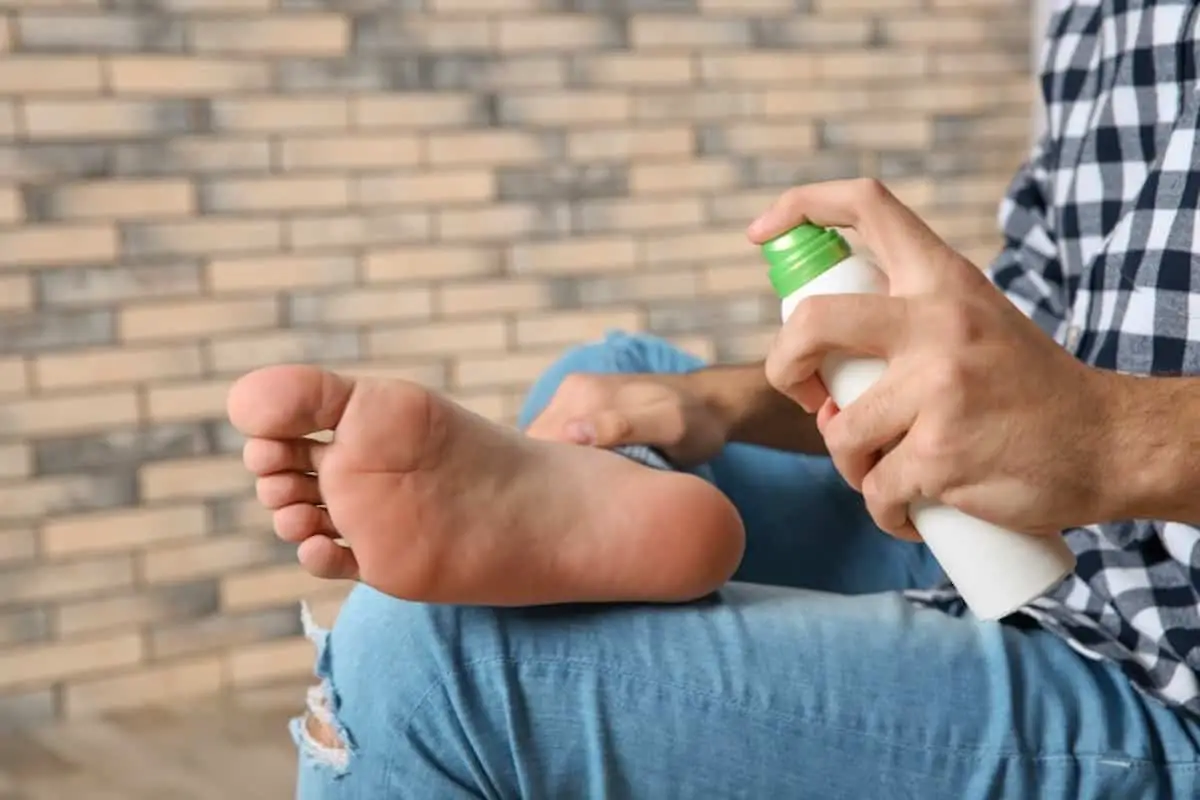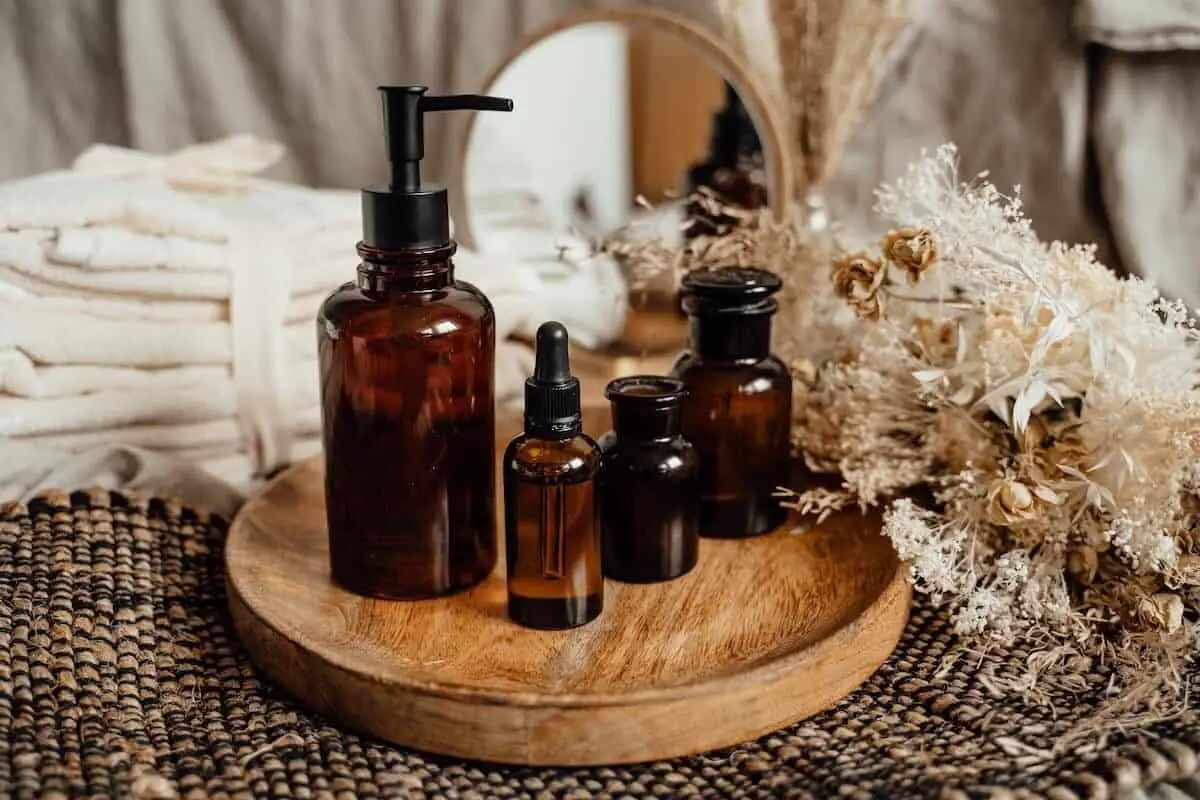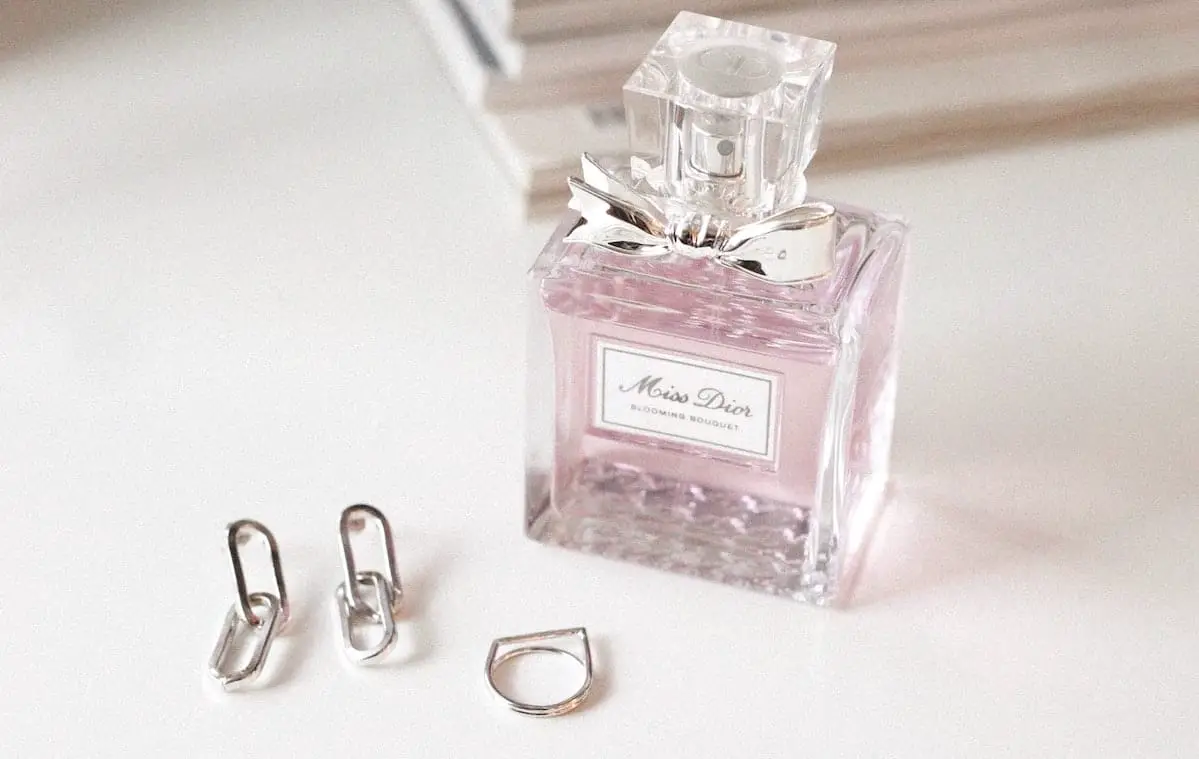Can You Put Deodorant on Your Feet? (Complete Guide!)
When we think of deodorants, we usually think of using it under our arms or on our body to mask our body odor! But, if the purpose of using deodorants is to prevent the foul body odor, it may make you wonder whether you can put deodorant on your feet!
You can put deodorant on your feet if you want to prevent your feet from smelling. If your goal is to prevent your feet from sweating in the first place, then using an antiperspirant is recommended. Using antiperspirant on dry feet during bedtime is the most effective to avoid feet sweating.
In this article, we take a look at this topic in detail. I will answer some of the most common questions that you may have regarding using a deodorant on your feet. Plus, I will share with you some practical tips that have worked for me to prevent my feet from stinking!
So, let’s get started!
What Causes Feet Sweating?
Several factors can cause feet sweating including stress, wearing wet or sweaty shoes, wearing too-tight shoes, walking or standing for a prolonged period of time, or wearing the same pair of shoes every day. Teenagers and pregnant women tend to have sweaty feet more often due to hormonal changes!
It is quite normal to have sweaty feet. In fact, sweaty and stinky feet is a common problem for people irrespective of the season or their geographical location!
You might be surprised to know that each foot has approximately 125,000 sweat glands! The sole of our feet contains more sweat glands per square centimeter than any other part of our body! Thus, it is quite normal for your feet to sweat.
That said, if you notice that your feet are sweating excessively on a regular basis, it may indicate a condition called hyperhidrosis. You may want to consult your doctor or a dermatologist in that case.
Feet sweating, combined with wearing the same pair of shoes every day is often the most common cause for stinky feet! They even have a medical term for smelly feet. It is called Bromodosis.
Having sweaty and stinky feet can not only cause embarrassment, but it can also lead to health issues such as athlete’s foot and toenail fungus.
Thus, it is important that we take care our feet and learn how to keep it fresh and clean!
Will Using Deodorant Prevent Your Feet from Smelling?

The purpose of a deodorant is to prevent the bad odor of your body. Well, the same holds true when you use the deodorant on your feet!
Using a deodorant on your feet will prevent your feet from smelling. Deodorants contain fragrances that help mask the foul smell produced by your body. Furthermore, using a foot deodorant can help get rid of the foul smell on your foot and deodorize the shoes!
A foot deodorant like Elite Foot Spray (on Amazon) is a specialized product designed to be applied to your feet to prevent them from smelling. It is said to be more effective as it can help get rid of the smell from your feet and deodorize your shoes at the same time.
That said, any ordinary deodorant can also get the job done! However, if you are looking to get rid of the sweat on your feet, a deodorant might not be enough!
Does a Deodorant Prevent Your Feet from Sweating?
An ordinary deodorant will not prevent your feet from sweating. Using a deodorant with antiperspirant qualities will help you avoid producing sweat on the feet. For best results, first, clean and dry your feet. Then, apply antiperspirant on your feet at night before bedtime.
Deodorant is designed purely to prevent the odor emanating from your body. Deodorants do this by masking the body odor using fragrances. However, a simple deodorant doesn’t have the qualities to prevent the foot or (any part of the body) from sweating.
You may be wondering, how is a deodorant different from an antiperspirant? Well, let’s understand that further.
Difference between Deodorant and Antiperspirant
The key difference between a deodorant and an antiperspirant is that deodorant is used to mask body odor by killing the odor-producing bacteria on our skin and using fragrances. Whereas an antiperspirant is used to prevent the production of sweat itself by forming a layer over the sweat glands.
A deodorant usually contains compounds that make our skin too salty for bacteria to survive. Therefore, they act by killing the odor-producing bacteria. Furthermore, a deodorant also contains chemicals that act as fragrances that mask any foul-smelling odor.
An antiperspirant, on the other hand, contains chemicals such as aluminum that are designed to form a layer over the sweat glands on the skin thereby blocking the pores on your skin. Thus, when the sweat produced by the body is blocked, it sends a signal to the brain to stop producing more sweat.
Tips for Using Deodorant on Your Feet
One of the first things that you need to remember is that there are several types of deodorants that you can use such as stick deodorants, roll-ons, or aerosol based deodorants (Deo Spray). Depending on the type of deodorant being used, the process of application may vary.
- Stick Deodorants – Stick deodorants are applied in a two-and-fro motion. Make sure to remove the plastic cap from the top and turn the bottom part of the container until the deodorant stick is visible. Then, apply it to your feet.
- Roll-on Deodorants – Using a roll-on spray is quite simple. Remove the cap of the bottle and just roll it on your feet. The roll-on ball will easily contour the shape of your feet and apply deodorant in a consistent and evenly distributed manner.
- Aerosol Spray Deodorant – To apply the aerosol-based deodorant, make sure that you shake the bottle before use. Keep the deodorant about 10 centimeters away from your feet, and press the spray nozzle on the top of the bottle. Make sure that the deodorant is applied across the complete sole of your feet.
Regardless of the type of deodorant you plan to use on your feet, there are certain things that you should keep in mind. These are as follows –
- Clean and Dry Your Feet Before Application – you want to make sure that your feet are clean and dry before you apply the deodorant. This especially holds true if you are applying the deodorant in the morning before getting dressed.
- Allow the Deodorant to Dry – let the deodorant settle on your skin before you start wearing the socks and shoes.
- Use the Antiperspirant at Night – if your deodorant has antiperspirant qualities, you want to make sure that you use it the night before. As per the American Academy of Dermatology Association, applying the antiperspirant at night allows it to get absorbed by your skin and create a coating that will block your sweat the next day. Using an antiperspirant in the morning will make it less effective.
Tips to Prevent Your Feet from Smelling
You might find it interesting to know that it is not the sweat that produces the foul smell from your body. Sweat is in fact a colorless and odorless liquid that only helps your body cool down and maintain a certain temperature range.
That said, sweat does contribute to bad odor indirectly as it acts as a breeding ground for all kinds of bacteria present on your skin. Thus, a combination of keeping your feet clean and preventing the feet from sweating can help you get rid of the smell from your feet!
While using an antiperspirant is definitely one way to get rid of sweat from your feet, here are some other tips that will help you avoid your feet from smelling!
1. Wear the Right Sock
One of the first things to keep in mind is to wear the right kind of sock. The best option is to go with cotton socks. Try to avoid nylon socks as they are less breathable. Make sure that you change your sock every day in order to prevent the sweat from accumulation on the sock adding to the sweat and stink.
If you are excessively worried about feet sweating, you can also carry a spare pair of sock. Change your sock after every 4-6 hours of usage.
2. Keep Your Shoes Clean
Clean your shoes regularly. If your shoes are made of cloth, put them in a laundry bag and clean it in a washing machine. Furthermore, make sure that you wear leather, canvas or cloth shoe as they let your feet breathe. This will reduce the amount of sweating in your feet.
If cleaning is not possible, try to wear a different pair of shoes every day so that your shoes get at least 1 day to dry out completely. Keeping your shoes in the sun can also help it dry out faster and kill bacteria and other germs.
Another solution is using a foot deodorant like Elite Foot Spray that not only removes odor from your feet, but also deodorizes the shoe. The best result is however attained by cleaning your shoe.
3. Wash Your Feet
Washing your feet with water and soap will not only make sure that your feet are clean, but it will also help reduce the temperature of your body and give a soothing effect!
Try to wash your feet at least once a day, ideally at the end of the work day. You can use any anti-fungal soap. Alternatively, you can also add 1 tablespoon of salt in the water and mix it properly.
Once your feet are washed, make sure that you dry them properly using a towel; especially between your toes. You can also use an anti-fungal power to help dry your feet.
4. Use an Anti-fungal Powder
Using an anti-fungal powder will help dry out your feet. It will also fight against any fungal growth on your feet and keep your feet healthy. Using an anti-fungal foot powder also absorbs the sweat from your feet.
You can easily obtain the foot powder over-the-counter from a drug store.
5. Keep Your Feet Dry
So, this tip might seem a bit obvious but it is important to re-iterate that in order to prevent the feet from sweating, you must make sure that your feet are clean and dry.
6. Use Medicated Insoles
Medicated Insoles such as Dr. Scholl’s Odor-X (on Amazon) help fight the odor in your shoe. These insoles can be easily added to any pair of shoes as they come in various sizes.
They are usually made of durable foam that contains a layer of activated charcoal that helps absorb the sweat from your feet and inside of the shoe. This keeps the shoe and your feet clean, dry, and odor-free. Deodorizing action usually continues even after you have taken off the shoes.
Once the insole wears out, you can easily substitute it with a fresh new pair!
7. Use Antiperspirants
I’ve already mentioned about the use of antiperspirants throughout the article. Antiperspirants, if used appropriately, are quite effective in preventing your feet from sweating!
In fact, even dermatologists often treat hyperhidrosis (excessive sweaty feet) by using antiperspirants. Obviously, this is one of many methods adopted. But, the point is, it is quite effective!
8. Drink Enough Water
Lastly, make sure you are always hyderated. Meaning, you should intake sufficient amount of water throughout the day. On average, adults should drink 8-12 cups of water every day.
You may be tempted to think that if the objective is to keep the feet dry, then how will water really help. This might seem counterintuitive at first, but water actually helps reduce the amount of sweat. Water helps cool down the body and contain the body temperature. This in turn leads the body to produce less sweat.
Can Putting Too Much Deodorant be Harmful to Your Feet?
Using deodorants on a regular basis on your feet has the potential be cause harm to your feet or your skin.
Most deodorant contain ethyl alcohol. Thus, excessive use of deodorant can cause dryness of skin and, in extreme cases, lead to skin irritation. It is important not to apply excessive deodorant on the skin. It is also best to avoid frequent application of deodorant on the same patch of the skin.
Ethyl alcohol is one of the key ingredients that cause denaturation. Meaning, the alcohol molecules can easily bond and rupture the outer membrane of the cells and expose the inner contents of the cell.
This exact process is really what makes ethyl alcohol effective against micro-organisms like bacteria or virus. Since, micro-organisms are made of very few cells, alcohol is fatal for such micro-organisms killing the germs instantly.
For humans, alcohol does have a similar effect. Thus, while using deodorant or ethyl alcohol can help your feet dry quickly, excessive use of alcohol or deodorant on the skin can cause dryness and skin irritation.
More Related Topics
- How to Smell Good after Gym Workout? [Without a Shower!]
- Should Perfume be Sprayed on Skin or Clothes? A Definitive Guide!
- 9 Best Perfumes for a Date! [For Him & Her]
- Deodorant vs Perfume: What’s the Difference? [Complete Guide!]
- Is Perfume a Good Gift? [With Options for Every Occasion!]
- Does Perfume Stain Your Clothes? [With Tips to Avoid the Stains!]
- 13 Reasons Why Your Perfume Fades So Quickly!



![What is an Antiperspirant? [And When Should You Use It!]](https://styleuphq.com/wp-content/uploads/2021/10/happy-young-woman-using-roll-on-deodorant-2021-08-29-23-41-24-utc-optimized.webp)
![9 Best Perfumes for College [For Men & Women!]](https://styleuphq.com/wp-content/uploads/2021/10/college-student-2021-09-24-03-38-40-optimized.webp)
![How to Tell if Perfume is Fake? [The Complete Guide!]](https://styleuphq.com/wp-content/uploads/2021/08/happy-young-woman-with-paper-blotter-standing-by-d-ATEEUG8-Optimized.jpeg)
![5 Tips to Smell Good After a Gym Class? [Without a Shower!]](https://styleuphq.com/wp-content/uploads/2021/04/5-Tips-to-Smell-Good-After-a-Gym-Workout.jpeg)